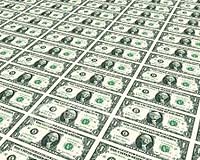| . |  |
. |
Hong Kong (AFP) Oct 27, 2010 Hong Kong's luxury home prices have topped their pre-Asian crisis peak, data showed Wednesday, frustrating government efforts to cool one of the world's most expensive real estate markets. Average prices for homes of at least 100 square metres (1,100 square feet) are now 14 percent above what they fetched before the 1997 downturn, the Hong Kong Monetary Authority (HKMA) said. The data comes amid fears of a property bubble in the densely populated city of seven million and has led some lawmakers to call for a resumption of a subsidised housing scheme due to concerns about the city's growing income gap. Government figures show average luxury home prices in August were 142,249 Hong Kong dollars (18,300 dollars) per square metre, compared with around 122,500 dollars before the 1997 crisis. Overall, home prices plunged about 60 percent during the Asian crisis, according to government data. However, the cost of a home has soared more than 45 percent from their trough two years ago, prompting the government to hold about half a dozen sales in the past year to boost supply. The sales sparked huge interest with Hong Kong's richest tycoon, Li Ka-shing, snapping up two prime residential sites for about 7.61 billion Hong Kong dollars in August. Analyst Xavier Wong warned that the city's property market may already be in the "early stages" of a property bubble with little sign of prices cooling down. "Luxury property prices will continue to rise by about 12 percent in the next (year)," Wong, director and head of research for Greater China at property consultancy Knight Frank, told AFP. Earlier this month, the city's chief executive Donald Tsang outlined a fresh batch of measures aimed at cooling the property market, including halting automatic residency for rich property buyers. The move is expected to affect wealthy mainland Chinese investors, who account for as much as half of luxury homes sales in Hong Kong, stoking claims that speculators are adding to the sharp price rise. "In recent years, Hong Kong has seen a surge in mainland Chinese buying luxury homes," Buggle Lau, chief analyst at Hong Kong property broker Midland Holdings, told AFP. "This has created a situation where demand for luxury homes exceed supply." Pro-government lawmaker Raymond Ho called on the government to consider restarting the city's subsidised housing scheme. "The middle and lower class are finding it more difficult to afford flats amid ever-increasing property prices," he said. Non-luxury flat prices have put home ownership out of reach for many Hong Kong residents, although they remain below their 1997 peak. Opposition lawmaker Frederick Fung said: "For private developers, of course it's the more money, the better... They are not willing to help stabilise the market. "Since there is no regulation, it is not possible to control their greediness and shortsightedness." Among those finding it difficult to find a place to buy is leading concert pianist Lang Lang, who was born in China but now calls Hong Kong home. "I'm proud to be a Hong Kong resident ... but Hong Kong is very expensive," the 28-year-old was quoted as saying in the South China Morning Post on Wednesday. "I have a home in New York. I have a home in Beijing, but I'm still looking for my dream home in Hong Kong. It's more expensive than New York." Hong Kong has surpassed New York, Paris and Tokyo as one of the most expensive cities in the world in which to buy a flat, according to the Global Property Guide website. The site said Hong Kong is the third most expensive city to buy a 120 square metre apartment, with Monaco as the most expensive and London second.
Share This Article With Planet Earth
Related Links The Economy
 Outside View: QE2 won't make big waves
Outside View: QE2 won't make big wavesCollege Park, Md. (UPI) Oct 26, 2010 In November, the U.S. Federal Reserve will likely launch a second round of quantitative easing but don't expect QE2 to make big waves. The failure of the Group of 20 finance ministers talks permits China to continue to subvert Fed efforts to rekindle U.S. growth. More Fed purchases of Treasury and mortgage-backed securities would drive down borrowing costs and, it is hoped, boost busine ... read more |
|
| The content herein, unless otherwise known to be public domain, are Copyright 1995-2010 - SpaceDaily. AFP and UPI Wire Stories are copyright Agence France-Presse and United Press International. ESA Portal Reports are copyright European Space Agency. All NASA sourced material is public domain. Additional copyrights may apply in whole or part to other bona fide parties. Advertising does not imply endorsement,agreement or approval of any opinions, statements or information provided by SpaceDaily on any Web page published or hosted by SpaceDaily. Privacy Statement |